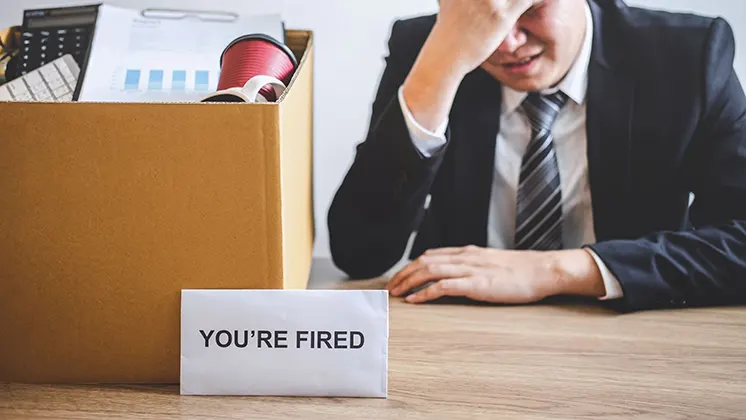Can You Be Fired While On Workers’ Comp In Virginia?

Many injured workers do not file for workers’ compensation because they are afraid of getting penalized or fired. In Virginia, it is illegal for an employer to fire an employee just for seeking workers’ comp benefits. It is your right to file a worker’s comp claim, and that right is protected by Virginia Code Section 65.2-308.
If you are on time off or light duty due to your work injury, you may find less job protection than usual. Here, we explain some common concerns regarding job security with regard to your Virginia worker’s compensation case.
Can I Be Fired For Filing Worker’s Comp?
Quite simply, no. Virginia Code Section 65.2-308 clearly states: “No employer or person shall discharge an employee solely because the employee intends to file or has filed a claim under this title or has testified or is about to testify in any proceeding under this title.”
In other words:
- It is illegal to fire you for intending to file a workers’ comp claim.
- It is illegal to fire you for actually filing a workers’ comp claim.
- It is illegal to fire your coworker or colleague for agreeing to testify for you.
- It is illegal to fire your coworker or colleague for actually testifying for you.
If you have been terminated and you believe that it was your employer’s way of retaliating against you, the law gives you the right to pursue a civil action in court. A successful court case could award you monetary compensation (including back pay with interest), as well as reinstatement at your job.
Can I Be Fired While On Workers’ Comp Time Off Or Light Duty?
Many work-related injuries force employees to take some time off work, or to temporarily switch to light-duty work with the same employer. Typically, if you have filed for workers’ comp, you will be receiving benefits during this period until the doctor clears you for returning to your regular job. But can your employer fire you while you are still unable to work or while your workers’ comp case is still going on? Unfortunately, the answer might be yes.
Here’s how it works: If your doctor clears you for light-duty work only, it will be up to your employer to provide suitable work for you. Some companies may have light-duty jobs available, but others just don’t. If your employer does not have the kind of work fit for you, they may have grounds to lay you off. On the other hand, if the company does give you a light-duty job but finds that you are not able to perform satisfactorily, they could also let you go.
If your injury requires you to completely miss work for some time, your employer is not obligated to hold the position for you. They could hire someone to replace you if or when they see fit, or they could simply terminate your job.
In any of these cases, the employer must have a legitimate reason for firing you. They can say, for example, that they are unable to accommodate your new work restrictions or that the business itself is unable to keep some employees. But if you were fired simply because your employer was unhappy with your workers’ comp case, it could count as wrongful termination, for which you can take legal action.
Will your workers’ comp benefits continue if you’ve been fired? Generally, yes, your benefits should keep coming for as long as your workers’ comp award is in effect. Your employer’s insurance carrier will likely shoulder the continued benefits.
How Can I Protect Myself From Getting Fired On Workers’ Comp?
It can be a scary possibility to lose your job while you are trying to recover from an injury. However, there are still some legal options to additionally safeguard your work.
One option is the Family Medical Leave Act (FMLA), a federal law that requires your employer to hold your job position for 12 weeks. You’ll have to apply for FMLA while you are on workers’ comp, and you must meet certain prerequisites.
Another protective federal law is the Americans With Disabilities Act (ADA). It requires certain employers to provide reasonable accommodations to employees with disabilities. These “reasonable accommodations” could be in the form of suitable work, special workplace equipment, additional time off, or the like. Again, some prerequisites must be met for ADA to apply.
To best understand what legal recourse is available to you, don’t hesitate to talk to a workers’ compensation attorney.
Call Slominski Law
Attorney Jaleh K. Slominski is trusted by numerous Virginian employees for her tireless legal service in workers’ compensation claims. She has helped workers secure their rightful compensation and protect their job status. She is ready to listen to you and guide you. Call the Slominski Law Lynchburg office at (434) 384-9400, or our Roanoke office at (540) 554-3762.





